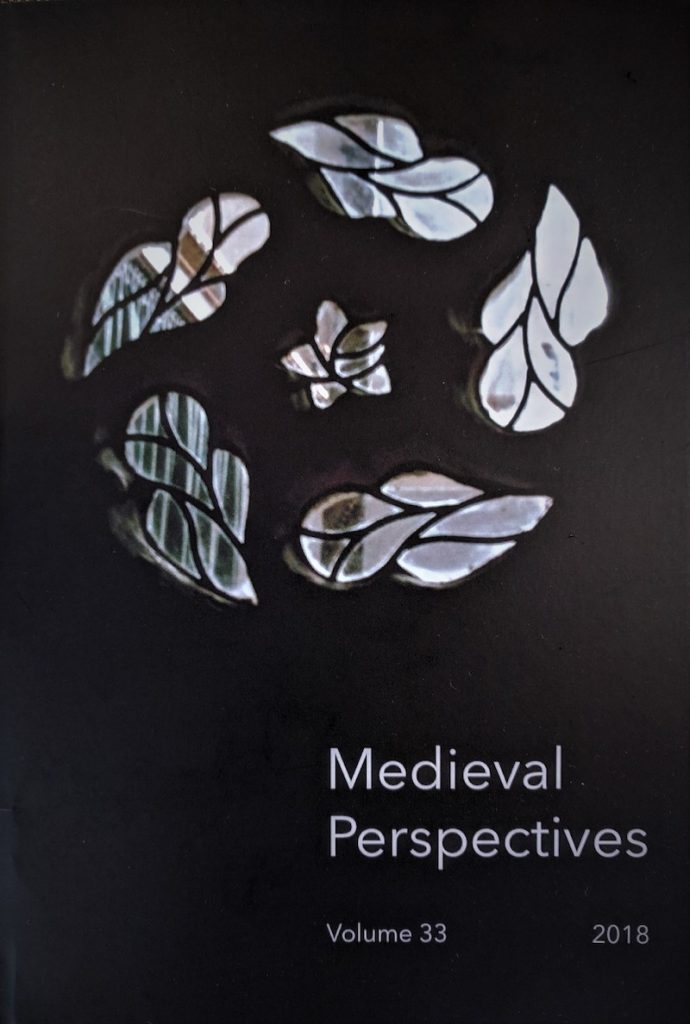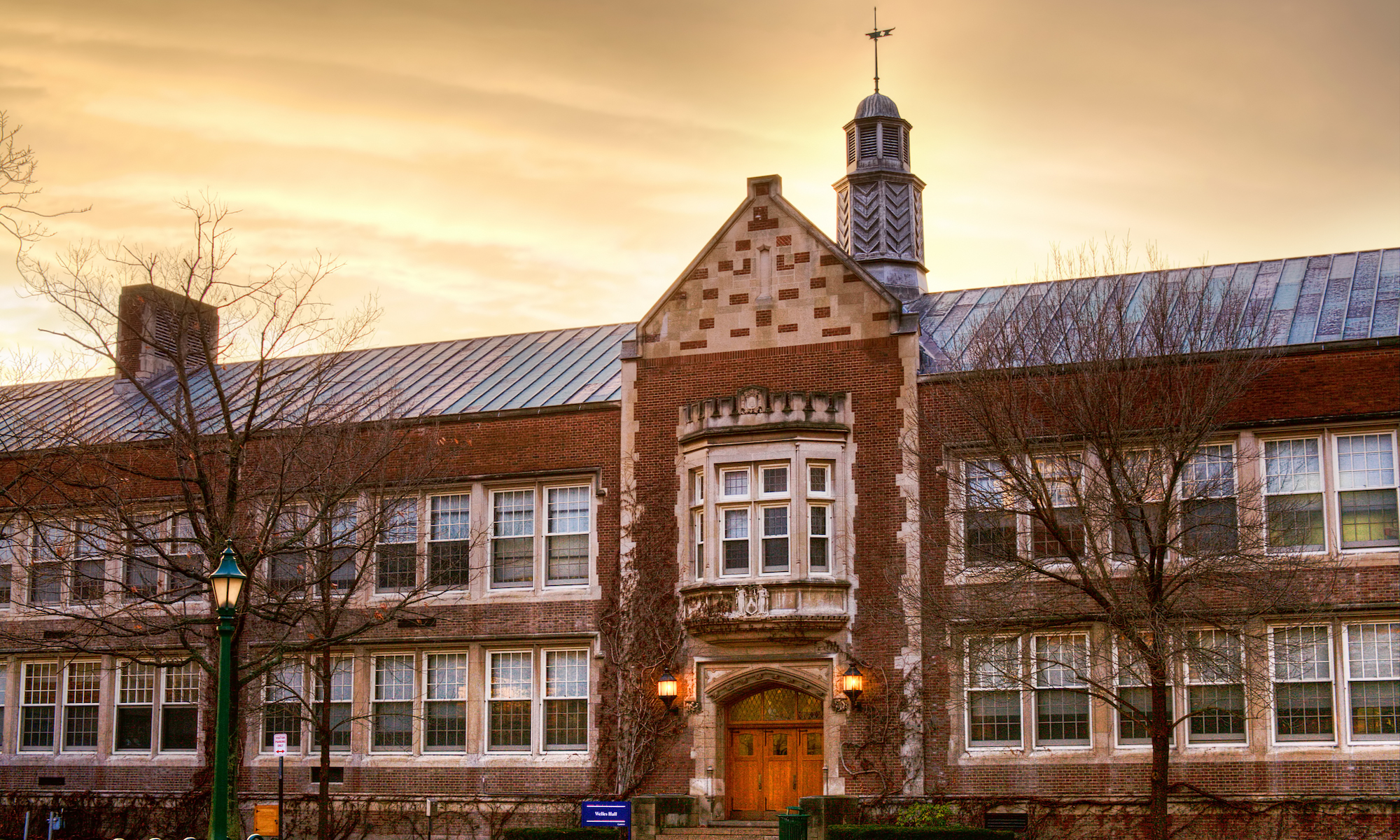Bellevue Literary Review held a symposium called “Can Storytelling Prevent Gun Violence?” Professor Rachel Hall, alum Monica Wendel and Gandy Dancer contributor Edward Supranowicz have work online in conjunction with the symposium.
Boston Review publishes nonfiction by Lytton Smith
Boston Review has published online “The Pruner’s Tale,”, a nonfiction piece by Associate Professor of English and Creative Writing Lytton Smith about the experience of a migrant orchard worker in Western Upstate New York. This piece is part of the Refugee Tales project, a series of walks and books in solidarity with Refugees, Asylum Seekers and Immigration Detainees in the U.K., Italy, North America, Australia, and elsewhere. “The Pruner’s Tale” first appeared in Refugee Tales vol. 3 (Comma Press, 2019).
Kertz publishes essay on medieval poetics
Visiting Assistant Professor Lydia Yaitsky Kertz has published an essay, “Literal and Literary Ekphrasis: A Medieval Poetics,” in the journal Medievalia et Humanistica. More information about the publication is available here.
Kertz publishes essay on Pearl
An essay by Visiting Assistant Professor Lydia Yaitsky Kertz, “The Positive Lessons of Luxury: Pearl as a Romance-Adjacent Text,” appears in volume 33 of Medieval Perspectives, a refereed journal of the Southeastern Medieval Association.

Lima and Goldberg, faculty member and alum, in journal special issue
Callaloo: A Journal of African Diaspora Arts and Letters will be publishing a special issue titled Unchaining Selves: The Power of the Neo-Slave Narrative Genre, co-edited by Professor Joan Anim-Addo (Goldsmiths University of London) and Geneseo Professor of English Maria Lima.
Lima has taught a course on the genre of neo-slave narratives at Geneseo for a number of years, and has been working on this special issue with Anim-Addo since 2015, when she chaired a panel at the Northeast Modern Language Association Annual Meeting on the topic.
Generally, the term neo-slave narrative refers to a genre of literature in which twentieth and twenty-first century writers take Atlantic slavery as the occasion for their literary texts. Neo-slave narratives often both draw on and depart from the earlier genre of slave narratives — autobiographical writing by enslaved and emancipated peoples of African descent addressing the experiences of living through slavery. Some examples of neo-slave narratives include Ishmael Reed’s Flight to Canada (1976), Toni Morrison’s Beloved (1987), M. NourbeSe Philip’s Zong! (2011), and Colson Whitehead’s The Underground Railroad (2016).
In their original call for papers, Anim-Addo and Lima write, “The main reasons for this seemingly widespread desire to rewrite a genre that officially lost its usefulness with the abolition of slavery are to re-affirm the historical value of the original slave narrative and/or to reclaim the humanity of the enslaved by (re)imagining their subjectivity. No other genre has undergone such widespread creolization—both a process and a concept used to describe many forms of contact across a wide range of cultural and ideological formations—having become a mode shared by many cultures in an uneven yet interdependent world.”
Lima and Anim-Addo’s special issue brings fresh scholarship to this established literary genre, interrogating some of the ways recent currents in black and Africana studies theory and criticism open up new conversations about slavery’s afterlife through this literary genre.
The issue includes essays by two Geneseo English alumni from the class of 2012 – Jesse Goldberg and Stephanie Iasiello – and an essay by SUNY Geneseo Distinguished Teaching Professor of English Beth McCoy.
Since graduating from Geneseo, Goldberg earned a PhD in African American literature at Cornell University and is now Visiting Assistant Professor of English at Longwood University in Virginia, where, like Lima, he is teaching a course on neo-slave narratives. Goldberg’s essay is titled “The Restored Literary Behaviors of Neo-Slave Narratives: Troubling the Ethics of Witnessing in the Excessive Present.”
Iasiello earned a PhD in African Diaspora Literature at Emory University and is now Board President at Reforming Arts, a non-profit organization providing liberal arts higher education to people incarcerated in women’s prisons in Georgia. Iasiello’s essay is titled “Photographing A Subtlety or the Marvelous Sugar Baby: Kara Walker’s Take on the Neo-Slave Narrative.”
McCoy’s essay, “Flights of Principled Fancy Dress: Steve Prince’s Katrina Suite and the Neo-Slave Narratives” extends the rich and ongoing collaborative work she has been engaging in with New Orleans artist Steve Prince.
The issue is in its final printing stages and is scheduled to be published by the end of 2018.
This post has been updated to reflect Iasiello’s and McCoy’s contributions to the forthcoming special issue.
McCoy publishes essay on Everett and Jefferson
Distinguished Teaching Professor Beth McCoy’s essay “The Great [White] Wail: Percival Everett’s The Water Cure and Thomas Jefferson’s Notes on the State of Virginia” appears in American Revenge Narratives, a 2018 Palgrave Macmillan collection of critical essays edited by Kyle Wiggins.
McCoy co-authors book chapter on community art
Distinguished Teaching Professor of English Beth McCoy and artist Steve Prince have co-authored “From Grief, Find Your Peace: Steve Prince and The Big Zipper Community,” an essay that explores how community art can help to heal community trauma. The piece appears in Routledge’s The Role of the Arts in Learning: Cultivating Landscapes of Democracy, edited by Jay Michael Hanes and Eleanor Weisman. McCoy will be teaching an integrative learning course on Prince’s art in Spring 2019.
Goldstein and Smith poem exchange published online
English major alum Evan Goldstein (’17) and Assistant Professor of English Lytton Smith are both included in a new issue of the online journal BathHouse focused on ideas of collaboration. The nine poems were written as part of a back-and-forth poem exchange between Goldstein and Smith.
The issue also features photographs taken by Goldstein as part of his CIDD Ambassadorship at SUNY Geneseo in the Summer of 2016.
English major alum Chloe Forsell featured in Boston Review
English major alum Chloe Forsell is the featured poet for the November 2017 “Poet’s Sampler” series at the Boston Review. Her six featured poems, take on themes of social justice and finding one’s identity in America today. Forsell graduated in May 2017 as an English (Creative Writing) and French double major. She was published several times in Gandy Dancer, the SUNY-wide literary and art magazine based at Geneseo. She also completed a prestigious Ambassadorship sponsored by the Center for Inquiry, Discovery, and Development. Her poetry selection in the Boston Review appears beneath a brief introduction written by poet and Assistant Professor of English Lytton Smith.

Lytton Smith’s chapbook wins contest
My Radar Data Knows Its Thing, a poetry chapbook authored by Assistant Professor of English Lytton Smith, has been selected as the winner of the inaugural Foundlings Chapbook Contest and Artist Residency. The chapbook will be designed by guest book artist Steve Fitzmaurice, and Foundlings Press will publish Dr. Smith’s collection in mid-January 2018. Dr. Smith will complete a weekend residency at Hotel Henry in Buffalo this November. The four runners-up were Terez Peipins, Tige DeCoster, Benjamin Brindise, and George Guida. Dr. Smith’s chapbook includes poems about radio, radar and wireless, devised based on research visits supported by funds from the Office of the Provost. All the poems in the collection begin with or rewrite Edward Bulwer-Lytton’s famous novel opening, “It was a dark and stormy night…”
